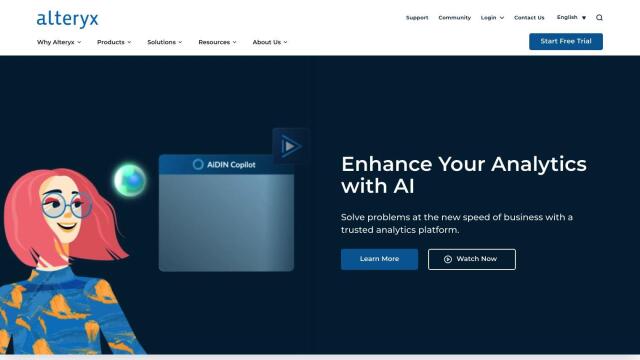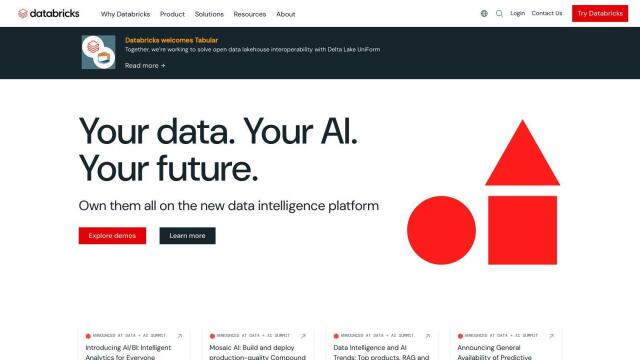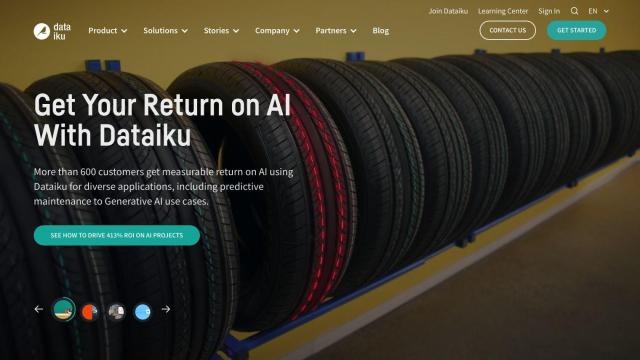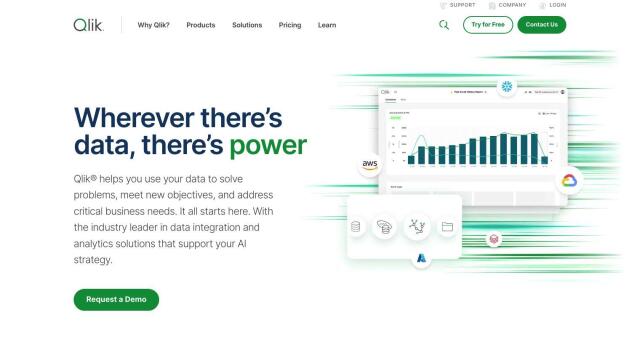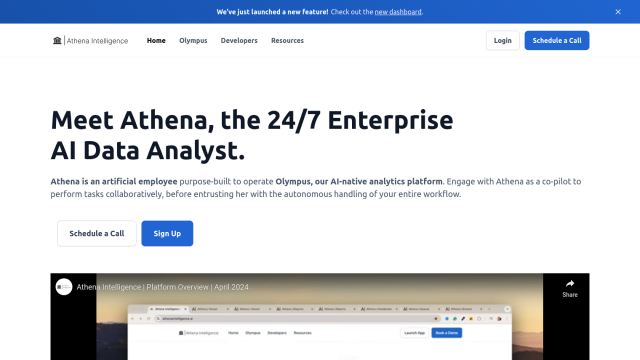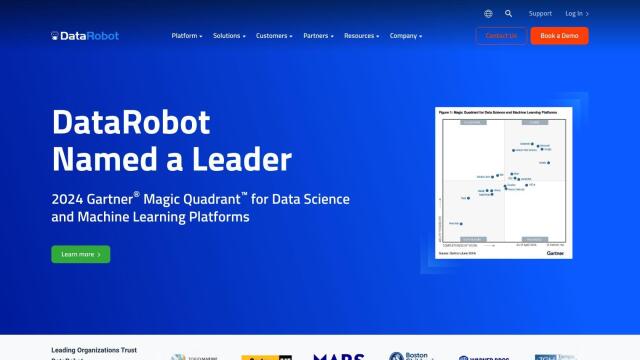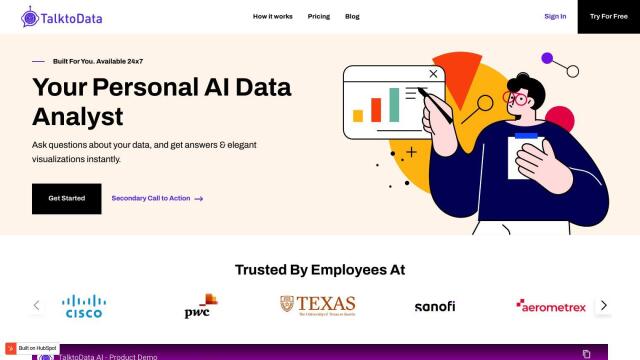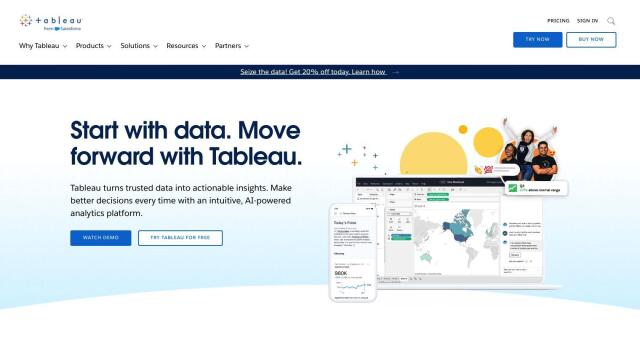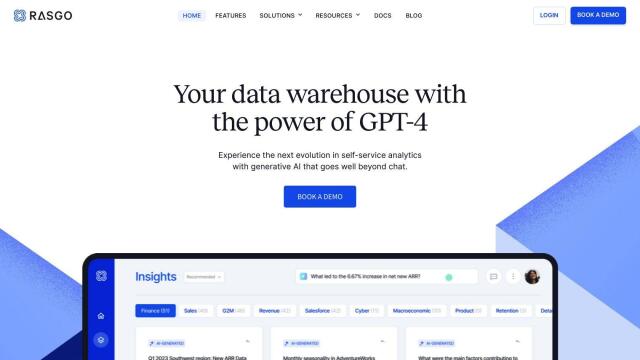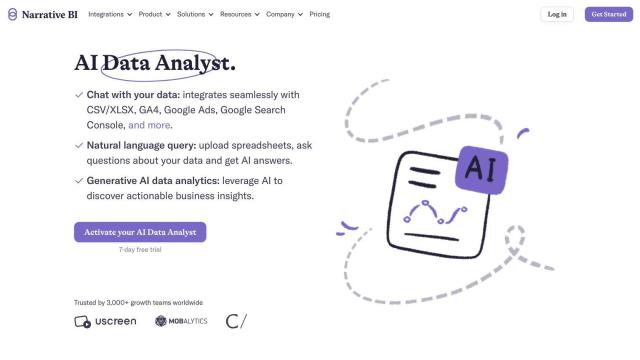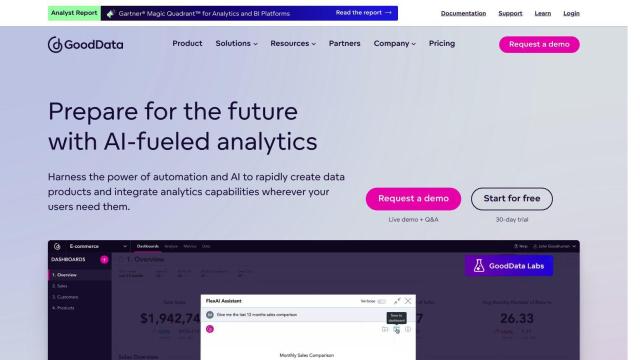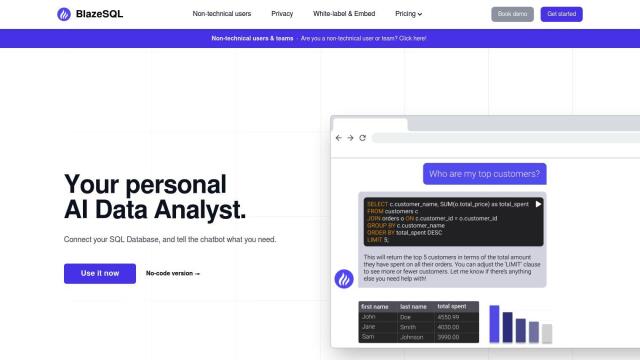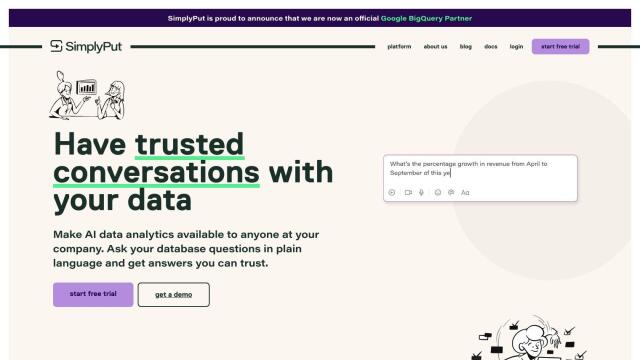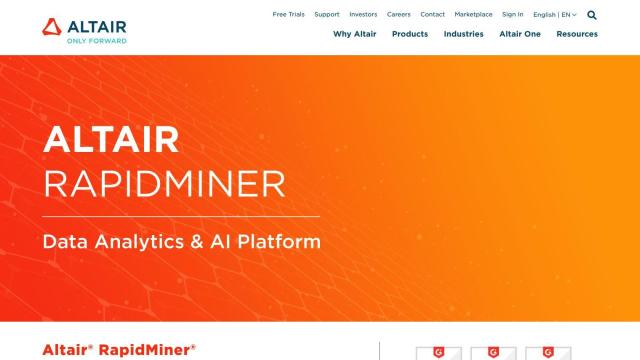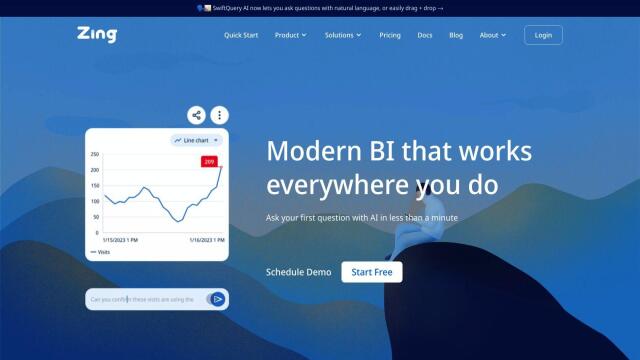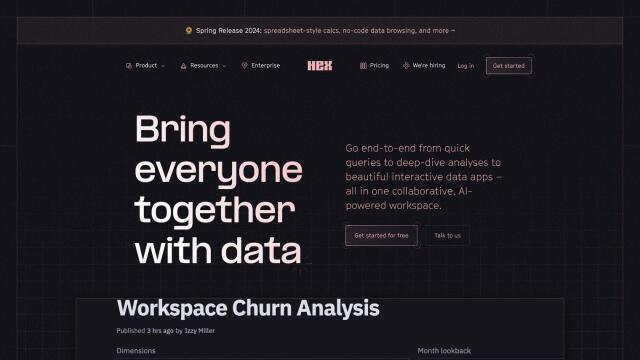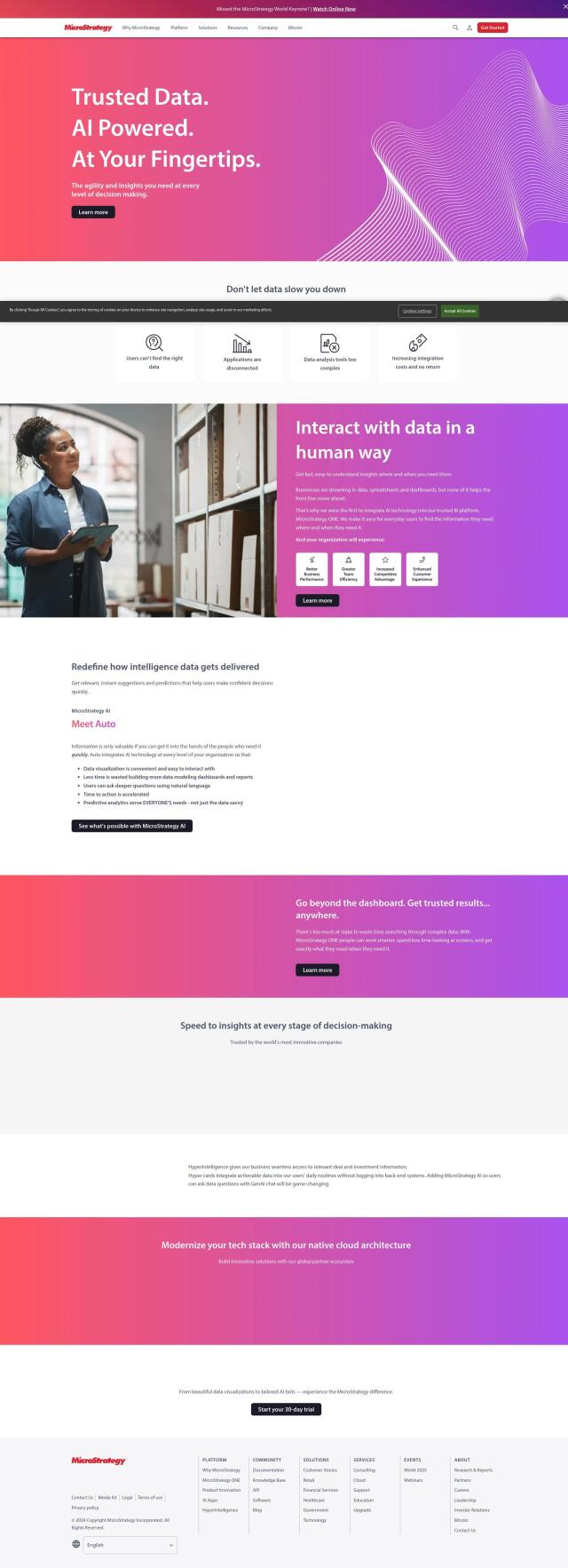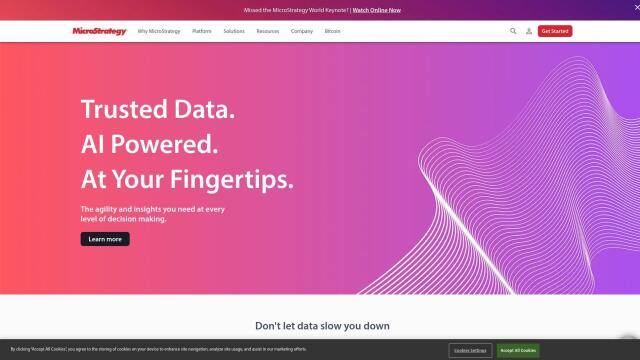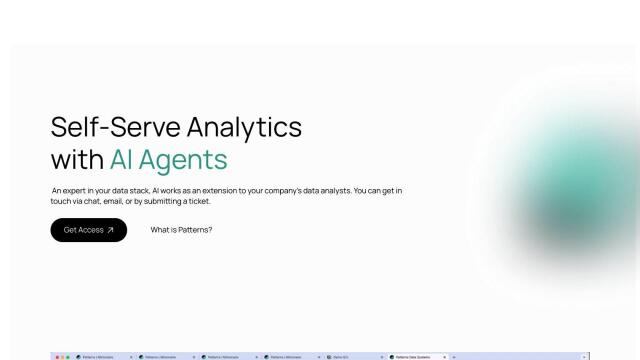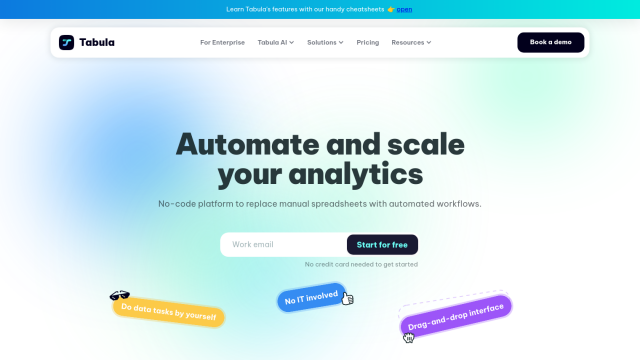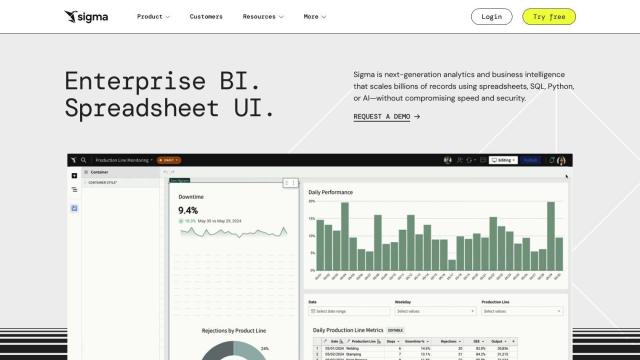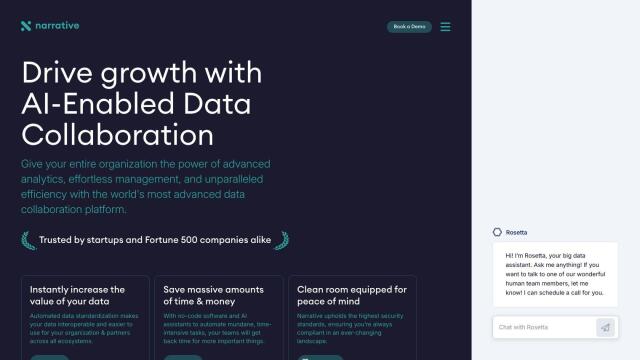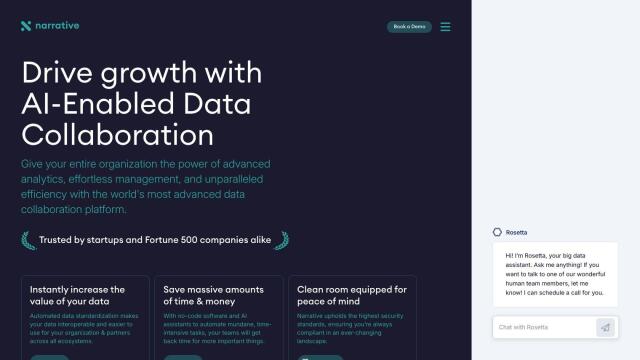Question: Is there a data analysis platform that can automate insights and save time and money on manual analysis?

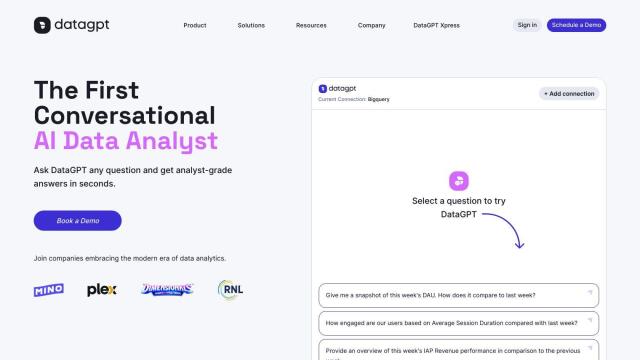
DataGPT
Another strong contender is DataGPT, a conversational AI data analyst that gives you analyst-level answers to your questions in a few seconds. It can connect to data sources like Bigquery and includes features like automated insights, contextual understanding and a data navigator for exploration. DataGPT is geared for optimizing growth metrics and making data analysis simple, with pre-built templates and integration with tools like Google Analytics, so it's a relatively low-cost option for making quick data-driven decisions.

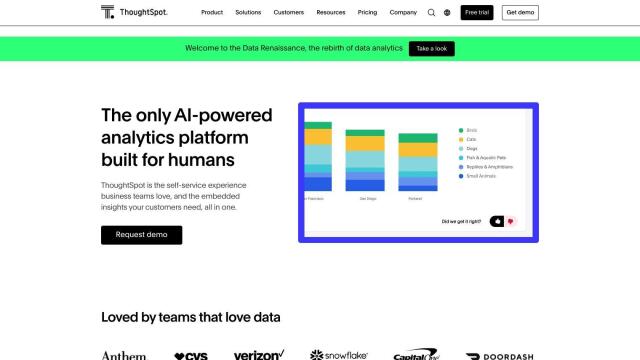
ThoughtSpot
ThoughtSpot also has a strong option with its AI-powered analytics platform. You can ask complex data questions in natural language and get results, which makes it easier to explore, analyze and share data. The platform is designed for self-service analytics by business teams and product builders, with search, AI-driven insights, flexible data modeling and governance controls, so it's good for many industries.

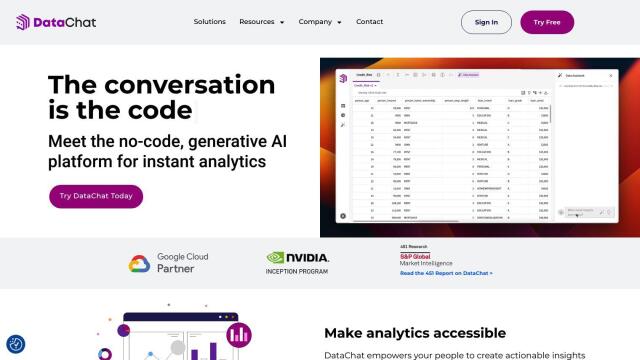
DataChat
For a no-code approach, DataChat is good for turning raw data into useful insights without having to write any code. The interface is like a combination of spreadsheet and chat software, so you can type questions and answers in chat boxes and spreadsheets to ask questions of your data. DataChat automates routine tasks and more complex operations like outlier analysis, so it's good for data scientists, analysts and business users.

